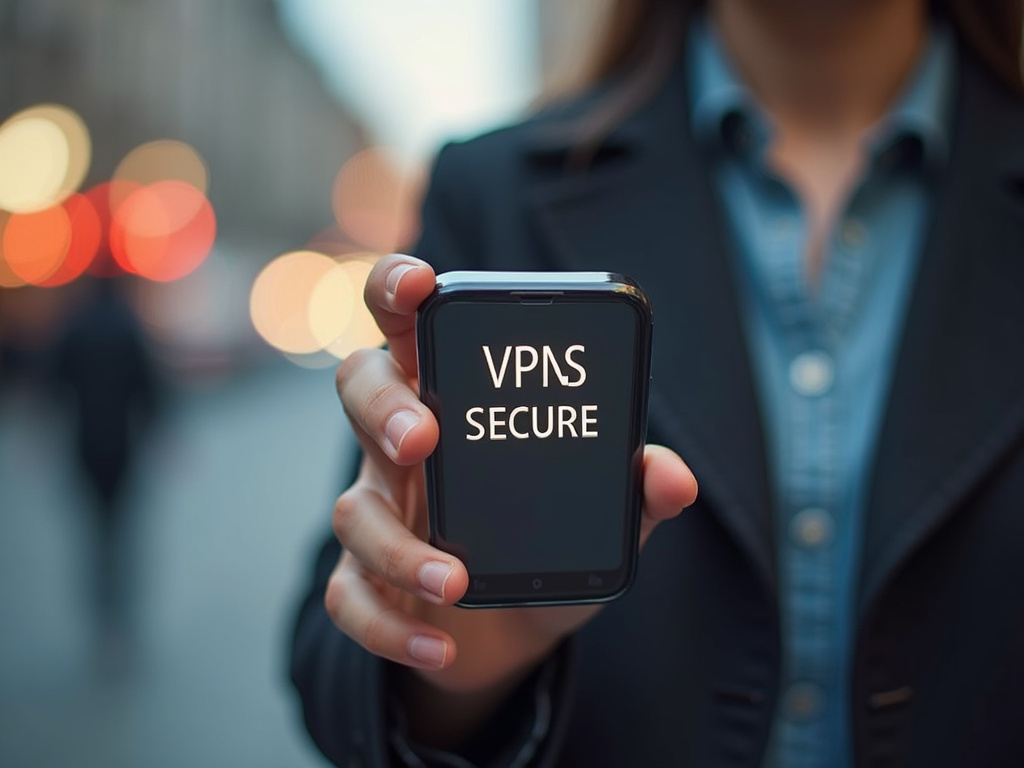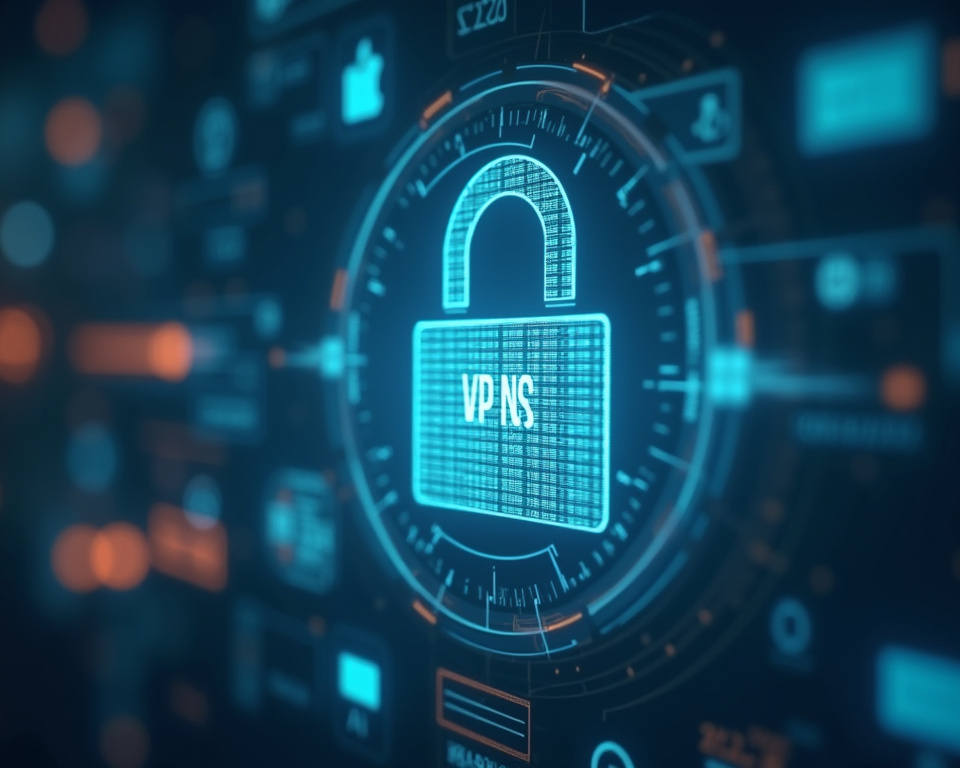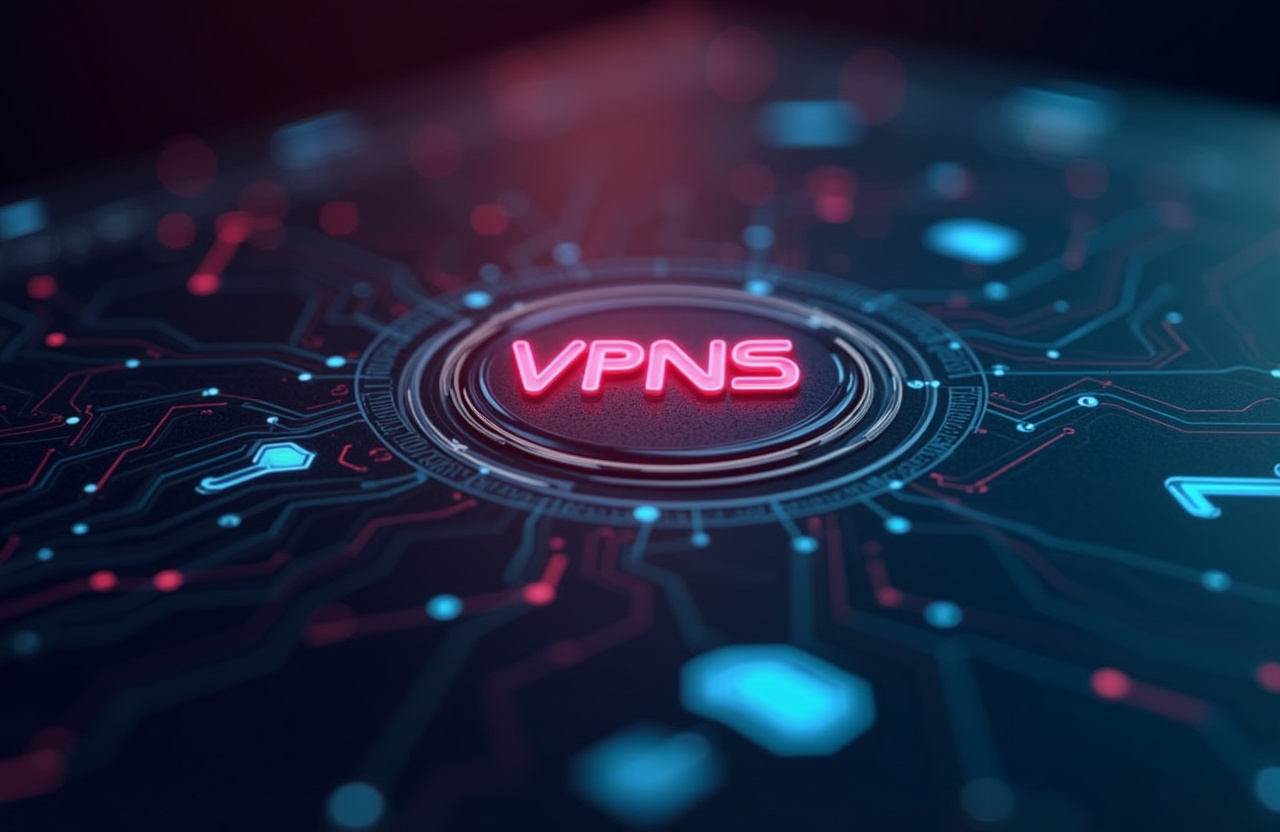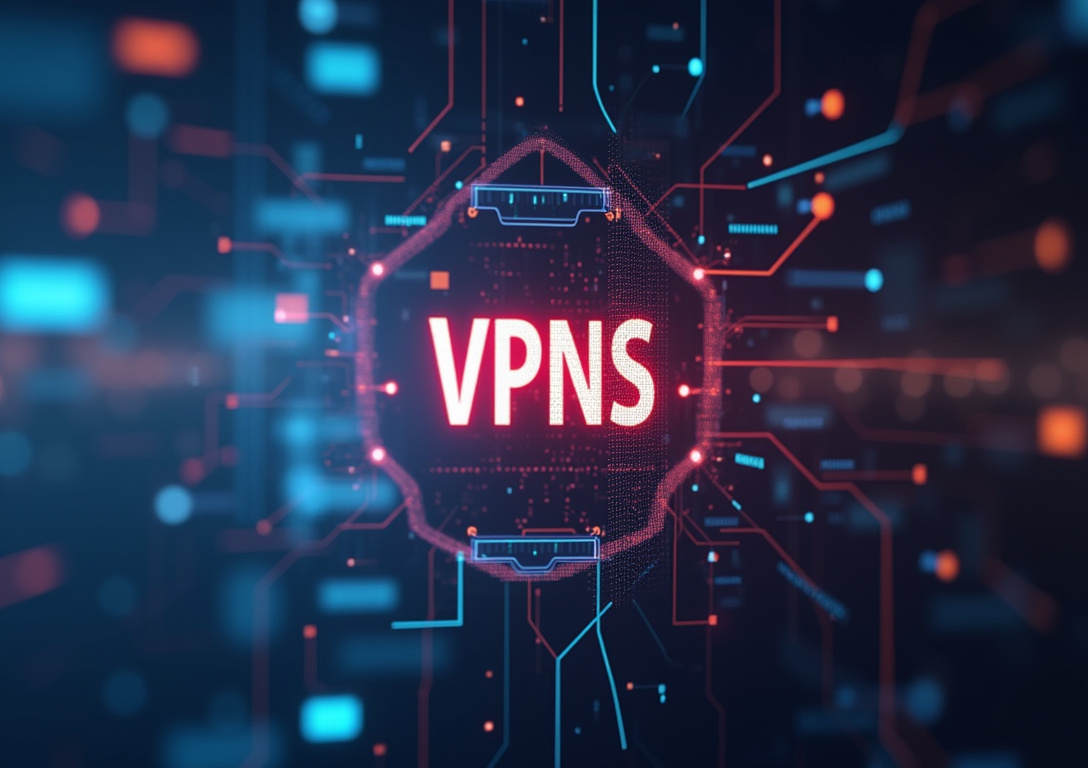VPNs for Child Safety Apps: Securing User Data

Table of Contents
- Introduction: Protecting Children's Data with VPNs
- Understanding the Risks: Data Breaches and Privacy Concerns in Child Safety Apps
- How VPNs Enhance Security: Encryption, IP Masking, and Data Anonymization
- VPNs for Services: Fortifying User Data and Ensuring Subscriber Privacy
- The Future of VPNs: Integration, AI, and Enhanced Security for Subscription Services
Introduction: Protecting Children's Data with VPNs
In an increasingly interconnected world, the digital realm has become an integral part of children’s lives, offering unprecedented opportunities for learning, communication, and entertainment. However, this digital immersion also presents significant risks, including exposure to inappropriate content, cyberbullying, online predators, and privacy breaches. To address these concerns, a growing number of parents are turning to child safety apps, software solutions designed to monitor, manage, and protect their children's online activities.
These apps often collect sensitive data, such as location information, browsing history, communication logs, and app usage patterns, raising critical questions about user data security and privacy. This article delves into the crucial role of Virtual Private Networks (VPNs) in enhancing user data security and safeguarding family interactions when using child safety apps. We will explore how VPNs can mitigate potential risks and provide a more secure online experience for children and their families, ensuring secure family interaction protection.
The primary function of a VPN is to create a secure, encrypted connection between a device and a remote server, effectively masking the user's IP address and encrypting all data transmitted through the network. This encryption process transforms data into an unreadable format, preventing unauthorized access and eavesdropping by third parties, such as hackers, internet service providers (ISPs), or government agencies. By routing internet traffic through a VPN server, the user's online activity appears to originate from the server's location, rather than the user's actual IP address, providing an additional layer of privacy and anonymity.
In the context of child safety apps, a VPN can significantly enhance user data security by encrypting the sensitive information collected and transmitted by the app. This encryption shields the data from potential interception and unauthorized access, protecting children's privacy and preventing the misuse of their personal information. For example, if a child safety app collects location data to track a child's whereabouts, a VPN can encrypt this data, making it virtually impossible for hackers or other malicious actors to intercept and use this information for nefarious purposes.
Similarly, if a child safety app monitors a child's browsing history or communication logs, a VPN can encrypt this data, preventing unauthorized access to sensitive information about the child's online activities and interactions. Beyond data encryption, VPNs also offer several other benefits that can enhance the security and privacy of child safety apps. One key advantage is the ability to bypass geographical restrictions and censorship.
In some regions, certain websites or apps may be blocked or restricted, limiting children's access to educational resources or communication platforms. A VPN can circumvent these restrictions by routing internet traffic through a server in a different location, allowing children to access blocked content and communicate with family and friends, promoting a positive and secure environment for family interaction protection. Another important benefit of VPNs is the prevention of IP address tracking.
Every device connected to the internet has a unique IP address, which can be used to track the user's online activity and identify their location. By masking the user's IP address, a VPN makes it more difficult for websites, advertisers, and other third parties to track online behavior and collect personal information. Child safety VPN offers protection.
This is particularly important for children, who may be more vulnerable to online tracking and profiling. The implementation of VPNs in child safety apps also has implications for the overall trust and integrity of the child safety app ecosystem. When parents and guardians feel confident that their data is being handled responsibly and securely, they are more likely to adopt and utilize these apps, leading to increased safety and protection for children online.
Building and maintaining this trust is paramount for the long-term success and effectiveness of child safety solutions. Therefore, integrating VPN technology into child safety apps should be viewed as a fundamental component of a robust security strategy, contributing to a safer and more private online experience for children and their families. It supports the privacy and user data security that promotes responsible digital citizenship and helps families confidently navigate the challenges of the digital world.
Understanding the Risks: Data Breaches and Privacy Concerns in Child Safety Apps
The escalating sophistication of cyber threats and the increasing prevalence of data breaches underscore the importance of incorporating robust security measures like VPNs into child safety apps. In today's digital landscape, cybercriminals are constantly developing new and sophisticated techniques to exploit vulnerabilities and gain unauthorized access to sensitive data. Data breaches, in particular, have become increasingly common, with companies and organizations of all sizes falling victim to cyberattacks that compromise the personal information of millions of users.
These breaches can have devastating consequences, including identity theft, financial loss, and reputational damage. In the context of child safety apps, the potential risks associated with cyber threats and data breaches are particularly concerning. Child safety apps often collect and store highly sensitive information about children, such as their location, communication logs, and online activity.
If this data is compromised, it could be used to harm children in a variety of ways, including stalking, cyberbullying, and online grooming. A VPN creates an encrypted tunnel for data transmission, preventing malicious actors from intercepting sensitive information such as location data, text messages, and browsing history. This encryption is essential for mitigating the risk of data theft, identity theft, and other forms of cybercrime that could potentially compromise a child's safety and well-being.
The encryption process transforms data into an unreadable format, making it virtually impossible for unauthorized parties to decipher the information, even if they manage to intercept it. This is particularly important when children are using public Wi-Fi networks, which are often unsecured and vulnerable to eavesdropping. A VPN encrypts the data transmitted over public Wi-Fi, preventing hackers from stealing sensitive information.
Moreover, VPNs can help to circumvent geographical restrictions and censorship, enabling children to access educational content and resources that might otherwise be unavailable. This is particularly relevant in regions where internet access is limited or heavily regulated. However, it is important to note that bypassing geographical restrictions should be done responsibly and in accordance with local laws and regulations.
While a VPN can provide access to blocked content, it is essential to ensure that the content is appropriate for children and does not violate any laws or regulations. Parents should supervise their children's online activities and ensure that they are using the VPN responsibly. The selection of a VPN for use with a child safety VPN should be carefully considered.
It is crucial to choose a VPN provider with a strong track record of security and privacy, a transparent privacy policy, and a commitment to protecting user data. Look for VPNs that employ advanced encryption protocols, such as AES-256, and that offer features like a kill switch, which automatically disconnects the internet connection if the VPN connection drops, preventing unencrypted data from being transmitted. The AES-256 encryption standard is widely considered to be one of the most secure encryption algorithms available, and it is used by governments and organizations around the world to protect sensitive information.
A kill switch is an essential security feature that prevents unencrypted data from being transmitted in the event that the VPN connection drops unexpectedly. In addition to security features, it is also important to consider the VPN's performance and reliability. A slow or unreliable VPN connection can negatively impact the user experience and may even discourage users from utilizing the child safety app altogether.
Choose a VPN provider with a global network of servers to ensure fast and stable connections, regardless of the user's location. A global network of servers allows users to connect to a server that is close to their location, which can improve connection speed and reduce latency. Family interaction protection is a crucial aspect of child safety apps, and VPNs can play a vital role in ensuring that these interactions remain private and secure.
By encrypting communication between family members, VPNs can help to prevent eavesdropping and unauthorized access to sensitive conversations. This is particularly important for families who rely on messaging apps and video conferencing tools to stay connected. VPN for apps encryption help protect family interaction protection.
A child safety VPN is important for parents and their children. Secure user data security while using a VPN for apps.
How VPNs Enhance Security: Encryption, IP Masking, and Data Anonymization
When integrating a VPN into a child safety app, it is important to consider the potential impact on user experience and performance. Balancing security with usability is a key challenge in software development, and this is particularly true for child safety apps, where ease of use and accessibility are paramount. A complex or cumbersome VPN integration can frustrate users and may even lead them to abandon the app altogether.
Therefore, developers should strive to create a seamless and intuitive user experience that does not compromise security. While the security benefits of a VPN are undeniable, it is also essential to ensure that the VPN does not introduce excessive latency or drain the device's battery. VPNs can sometimes slow down internet connection speeds due to the encryption process and the routing of traffic through remote servers.
Battery drain can also be a concern, as running a VPN in the background can consume significant power. Developers should optimize the VPN integration to minimize its impact on performance and provide users with a seamless and intuitive experience. This may involve using lightweight encryption algorithms, optimizing server locations, and implementing efficient data compression techniques.
Offering a variety of VPN settings and customization options can also enhance the user experience. For example, users may want to choose which apps to route through the VPN and which to bypass, or they may want to select a specific server location to optimize their connection speed. Providing these options can empower users to tailor the VPN to their specific needs and preferences.
Allowing users to customize their VPN settings can also improve performance. If a user only needs VPN protection for certain apps or websites, they can choose to route only that traffic through the VPN, minimizing the impact on overall connection speed. Similarly, allowing users to select a specific server location can help them to connect to a server that is closer to their location, which can improve connection speed and reduce latency.
Privacy is a fundamental right, and child safety apps should be designed with privacy in mind. This means minimizing the collection of user data, being transparent about data usage practices, and providing users with control over their data. In addition to technical safeguards, it is also essential to implement strong privacy policies that clearly outline how user data is collected, used, and protected.
These policies should be written in plain language and should be easily accessible to users. A VPN can further enhance privacy by masking the user's IP address and encrypting their online activity. This makes it more difficult for third parties to track users' online behavior and collect their personal information.
By masking the IP address and encrypting data, a VPN makes it more difficult for advertisers to track users across different websites and apps. However, it is important to remember that a VPN is not a silver bullet for privacy. It is still important to be mindful of the websites and apps that you use, and to avoid sharing personal information with untrusted sources.
Even with a VPN, your online activity can still be tracked if you log in to websites or apps using your personal information. Child safety VPN is here to help protect privacy. VPN for apps supports privacy by its nature.
User data security is enhanced by VPN for apps implementations. The use of a VPN should be viewed as one component of a comprehensive privacy strategy, which also includes strong passwords, two-factor authentication, and regular security updates. Strong passwords are essential for protecting your online accounts from unauthorized access.
Two-factor authentication adds an extra layer of security by requiring you to enter a code from your phone or email in addition to your password when you log in. Regular security updates patch vulnerabilities in your software and protect your devices from malware and other threats.
VPNs for Services: Fortifying User Data and Ensuring Subscriber Privacy
In addition to technical safeguards, it is also important to educate parents and children about online safety and privacy best practices. Technology alone cannot guarantee online safety; education and awareness are crucial components of a comprehensive approach to protecting children in the digital world. By empowering parents and children with the knowledge and skills they need to navigate the online world safely and responsibly, we can create a more secure and positive online environment for everyone.
This includes teaching children how to identify and avoid online scams, how to protect their personal information, and how to report inappropriate content. Online scams can take many forms, including phishing emails, fake websites, and social media scams. Children should be taught how to recognize these scams and how to avoid falling victim to them.
They should also be taught never to share personal information with strangers online, such as their name, address, phone number, or school information. Inappropriate content can include pornography, hate speech, violence, and other types of content that are harmful or offensive. Children should be taught how to report this content to the appropriate authorities.
Parents should also be encouraged to have open and honest conversations with their children about their online activities and to set clear rules and expectations for internet usage. Open communication is essential for building trust and creating a safe space for children to discuss their online experiences. Parents should encourage their children to come to them with any concerns or questions they may have about their online activities.
Setting clear rules and expectations for internet usage can help children to develop healthy online habits and avoid risky behavior. This may include setting limits on screen time, restricting access to certain websites or apps, and requiring children to use strong passwords. By empowering children with the knowledge and skills they need to stay safe online, parents can help to create a positive and secure digital environment.
This includes teaching children about cyberbullying, online predators, and the importance of protecting their privacy. Cyberbullying is a form of bullying that takes place online, using electronic devices such as computers, smartphones, and tablets. Children should be taught how to recognize cyberbullying and how to respond to it.
Online predators are adults who use the internet to groom and exploit children. Children should be taught how to identify online predators and how to avoid interacting with them. Furthermore, app developers have a responsibility to prioritize user privacy and security in their design and development processes.
This includes implementing strong security measures to protect user data, being transparent about data usage practices, and providing users with control over their data. App developers should use encryption to protect user data, implement strong access controls to prevent unauthorized access, and regularly audit their systems for vulnerabilities. They should also be transparent about how they collect, use, and share user data and provide users with the ability to control their data through privacy settings.
Child safety VPN are important for apps development. VPN for apps is important to grow user trust.
The Future of VPNs: Integration, AI, and Enhanced Security for Subscription Services
In conclusion, the integration of VPNs into child safety apps represents a significant step forward in enhancing user data security and protecting family interactions in the digital age. As children increasingly navigate the online world, the need for robust security measures to safeguard their privacy and well-being has never been greater. By encrypting data, masking IP addresses, and circumventing geographical restrictions, VPNs provide a valuable layer of protection against cyber threats, data breaches, and online tracking.
However, it is important to recognize that VPNs are not a panacea for all online security challenges. They are most effective when used as part of a comprehensive security strategy that also includes strong passwords, two-factor authentication, regular security updates, and ongoing education about online safety and privacy best practices. The selection of a VPN provider for use with a child safety app should be carefully considered, with a focus on security, privacy, performance, and reliability.
Parents and guardians should choose VPNs with strong encryption protocols, transparent privacy policies, and a commitment to protecting user data. Furthermore, app developers have a crucial role to play in prioritizing user privacy and security in their design and development processes. This includes implementing strong security measures, being transparent about data usage practices, and providing users with control over their data.
By working together, parents, educators, app developers, and VPN providers can create a safer and more secure online environment for children. The future of child safety apps will likely involve even greater integration of VPN technology, as well as the development of new and innovative security solutions to address the evolving threats in the digital landscape. Artificial intelligence and machine learning may also play a role in identifying and preventing online threats, such as cyberbullying and online grooming.
It is essential to remain vigilant and adapt to the ever-changing online environment to ensure that children are protected from harm. Child safety VPN are extremely important for the future. Children's health and safety are of paramount importance.
The future also brings great progress in user data security. VPN for apps is essential for parents. As technology continues to evolve, it is crucial to prioritize the safety and well-being of our children in the digital world.
By embracing a multifaceted approach that combines technical safeguards, education, and open communication, we can empower children to navigate the online world safely and responsibly. Family interaction protection is extremely important. As technology advances, it is imperative that we prioritize the safety and well-being of children online.
By combining the use of VPNs with education and responsible online behavior, we can create a secure digital environment where children can thrive and explore the world without fear. By fostering open communication, promoting responsible internet habits, and leveraging technology to its fullest potential, we can cultivate an online world that empowers and protects our children. It must be easy and secure for families to interact online and not worry about other issues.
Stay Updated
Get the latest VPN news, tips, and exclusive deals to your inbox.




